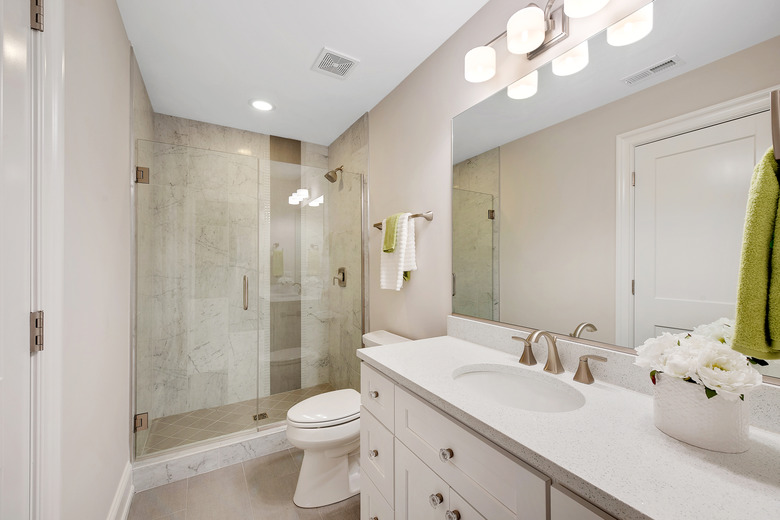Sewer Gas Smell After Taking A Shower
We may receive a commission on purchases made from links.
It's tough to appreciate how great you smell when sewer gas odors take over your bathroom after every shower. The annoying sewer gas smell likely indicates a problem with your drains or other plumbing system components. Troubleshooting the issue can help you determine if it's a DIY plumbing fix or one that calls for a professional plumber.
Leaking Shower Pipes
Leaking Shower Pipes
Leaky plumbing pipes can cause major damage to your home, but water damage isn't the only issue. The damaged pipes can also let sewer gases enter your home, especially if it's the drainage pipe that's leaking. Leaks can happen for a variety of reasons, including corrosion, holes from impact, or loose pipe fittings.
It's not always easy to tell when your shower pipes are leaking, especially since the pipes are usually hidden behind walls. Pipe leaks are usually best left to a professional who can identify why the pipe leaked. Licensed plumbers understand how different pipe materials work and how each should be handled when they need to be repaired.
Clogs in the Shower Drain
Clogs in the Shower Drain
Sometimes a shower drain clog causes the sewer gas odors you're smelling. Shower drains are prime targets for clogs since you wash so much debris down them. Things like soap scum, hair, and dirt routinely build up in shower drains and can eventually form a partial or full clog. This might be the culprit if you notice the water is draining slowly or you have standing water in addition to the sewer gas smell. The gunk built up in the clog can become very stinky and cause offensive odors.
Small, handheld drain clog remover tools can help clear clogs that are close to the drain opening. The teeth on the tool help grab hair and other debris causing the clog so you can pull them out. Deeper clogs might require a plumbing snake to clear the pipe.
Shower P-Trap Issues
Shower P-Trap Issues
Your shower has a P-trap, which should always have water in it. The purpose is to keep sewer gases from coming through the pipe and into your bathroom. If the P-trap is dry, it can't stop the odors from traveling into your bathroom. This can happen due to evaporation if it's a shower you don't use very often.
However, if it's a heavily used shower and you suspect the P-trap is to blame, you'll need help from a plumber. The P-trap for a shower is typically hidden, unlike sinks where you can easily access them below the sink. A plumber can determine if the P-trap is functioning properly or if there's another issue contributing, such as a plumbing vent problem.
Plumbing Vent Issues
Plumbing Vent Issues
Your plumbing vent system keeps water flowing and everything functioning correctly. If your plumbing vent system is clogged, blocked,
or otherwise not working properly, it could cause a sewer gas odor in your home. A malfunctioning vent can cause your shower P-trap to empty, allowing sewer gases to enter. It can also prevent sewer gases from leaving your home correctly.
The main stack is usually on the roof, which can be dangerous to access. The venting system is intricate, so leaving this task to a plumber is best.
Tree Roots in Drain Pipes
Tree Roots in Drain Pipes
If you have large trees growing near your home, their roots can cause major issues with your plumbing system. The roots can often infiltrate the drain lines from your home, clogging them and causing extensive damage. This can cause sewer odors to enter your home, and you might smell the odors outside as well. A plumber can inspect the lines to determine if tree roots are to blame.
When to Call a Plumber
When to Call a Plumber
If you can't solve the issue with simple fixes yourself, hire a licensed plumber to investigate. Plumbing can be difficult to fix, and you might not feel comfortable with some plumbing tasks. A licensed plumber has specialized tools that make it easier to find problems, and they know how to repair the issues quickly, correctly, and safely.
